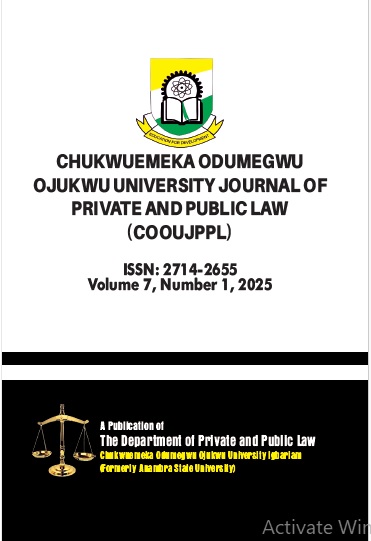COMPARATIVE ANALYSIS OF LEGAL FRAMEWORK FOR INSOLVENCY PROCEDURES AND PRACTICE IN NIGERIA AND SELECTED JURISDICTIONS
Abstract
The concept of insolvency remains a critical issue worldwide due to its economic and social implications. Generally, insolvency denotes the inability to pay debt upon demand. In both Nigeria and United Kingdom insolvency is a statutory ground for winding up of a company as a stipulated amount is stated in the Act whereby a company who is indebted to that amount or above but, cannot pay back upon demand may face severe consequences. This paper adopts doctrinal research methodology utilizing both Primary and secondary sources of data. This work finds that a thorough examination of the legal frameworks for insolvency procedures and practice in Nigeria and the selected countries are now geared towards saving companies with insolvency matters and not to kill or liquidate them. The work recommends that Nigeria should enact a separate Act dealing with insolvency and matters related thereto. In United Kingdom, beyond the Companies Act, the Insolvency Act and Corporate Insolvency Governance Act provide a better legal framework. In India, a similar observation exists as there is the Companies Act of India as well as the Insolvency and Bankruptcy Code. Such reform in Nigeria will enhance Nigerian insolvency management system.

